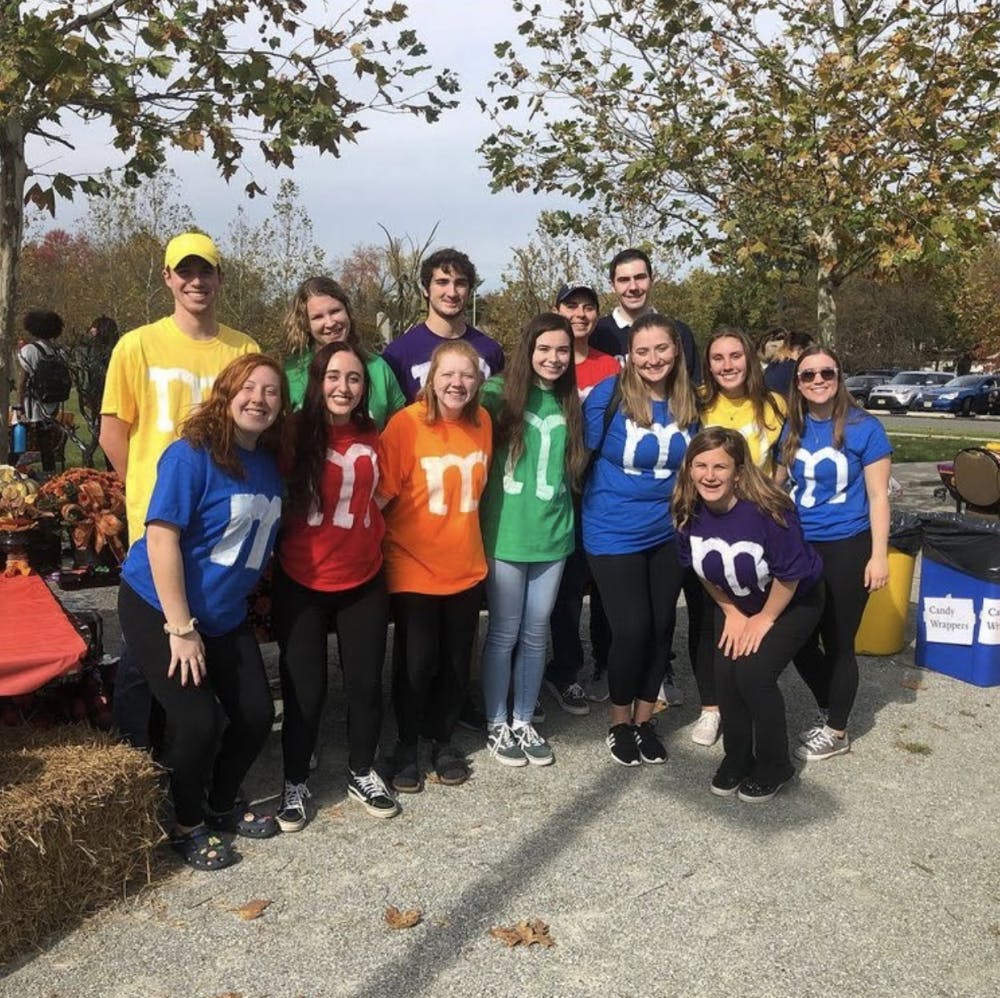By Rebekah Schroeder
Staff Writer
Campus Police Chief Timothy Grant wanted to create a criminology club for those attending the College, although to his surprise, one was already in existence. Students hoping to work in law enforcement, surveillance, judicial practice and forensic science started the group years ago.
It's been thriving ever since.
The Criminology Student Association’s (CSA) latest initiative involves working closer with the team protecting campus. Campus police liaison Andrew Iannaccone, a community correspondent for the club and sophomore criminology major, decided to join forces with the police, featuring officers as guests and creating events to express their life experiences in the field.
“It’s a real partnership, because I thought I was reaching out to Andrew with something that they didn’t already have,” Grant said, originally believing that his outreach would form a new alliance. But Andrew was already “off and running with it” alongside other group leaders.
Chief Grant wanted to participate, not just to expose students to the job’s reality, but to train their own personnel, who work at the college on a 24-hour basis. A former trooper of the New Jersey State Police, Grant has been the chief for three years after coming to the College in 2009.
The CSA hopes to be bigger than ever this semester in their exclusively remote events, welcoming anyone interested in criminal justice. They aim to inspire attendance and enthusiastic participation, especially because going into the field or having curiosity on the topic is not reserved to just those with the academic major. Meetings are held every other Wednesday at 12:30 p.m., with guest speakers scheduled for the entire semester over Zoom.

Their efforts are to encourage understanding and progress within criminal justice, especially after a past year of negative sentiments from countless protests over police brutality.
Iannaccone, who is “just getting his feet wet with law enforcement,” is finishing up the police academy to become a class one special law enforcement officer. The criminology student is trying to make the club reflect the change happening in the world through events, speeches and active conversations with members of the community.
“We have a lot of talks over the summer about the events happening, just to get student input, professors’ input, and so it was really a positive discussion,” he said. “We have all of these emotions welling up inside ourselves and it was good to just talk to other people about it.”
Chris Insosino, CSA’s Vice President and a sophomore criminology and psychology double major, aspires to be a prosecutor or defense attorney in the future ever since doing mock trials with his sister in high school.
“I feel like it’s not just police that has faced criticism, it’s all criminology,” he said. “I just wanted to point out the problems that the department is having and kind of what we as TCNJ students and criminology students can do about it.”
Different members of campus police are offering their time through various events, ranging from discussing hostage negotiations, juvenile justice, crime scene investigations and more. Students can email crim@tcnj.edu to be added to a group chat as well as a mailing list to be updated on latest club developments.
Some of the featured speakers are experienced intelligence analysts such as AJ Silva, who is talking about his history working within the counterintelligence and counterterrorism industry on March 10. Capitol Police Officer Ryan Parker is set to speak about his experiences and career.
Dr. Goff from The Center for Policing Equity has been asked to present in a Zoom meeting arranged by the criminology department on April 7. On May 5, Al Garcia, a New Jersey prosecutor who specializes in insurance fraud, is also poised to make an appearance. The club also hosts people from non-profit organizations, opening the dialogue up further.
Chief Grant’s team took on putting up Covid-19 signage and became a “mini-Amazon” for campus packages during the pandemic, helping faculty get their necessary resources in lieu of typical law enforcement activities. As they took on new roles, the Criminology Student Association orchestrated a semester focused on improving public connections.
“I feel like people might kind of be afraid to come out and have these conversations. But I think it’s really important to kind of be open about it, cause like, we’re all here to kind of do better,” Insosino said. “We’re here to build relationships and talk with other people about it.”
For Iannaccone, after going between accounting and taking care of pets as potential career paths, the reason he chose law enforcement was simple.
“I mean it’s cliche, but going out there, making a positive change in my community,” he said. “I really like that.”
Updated 2-27-2021







